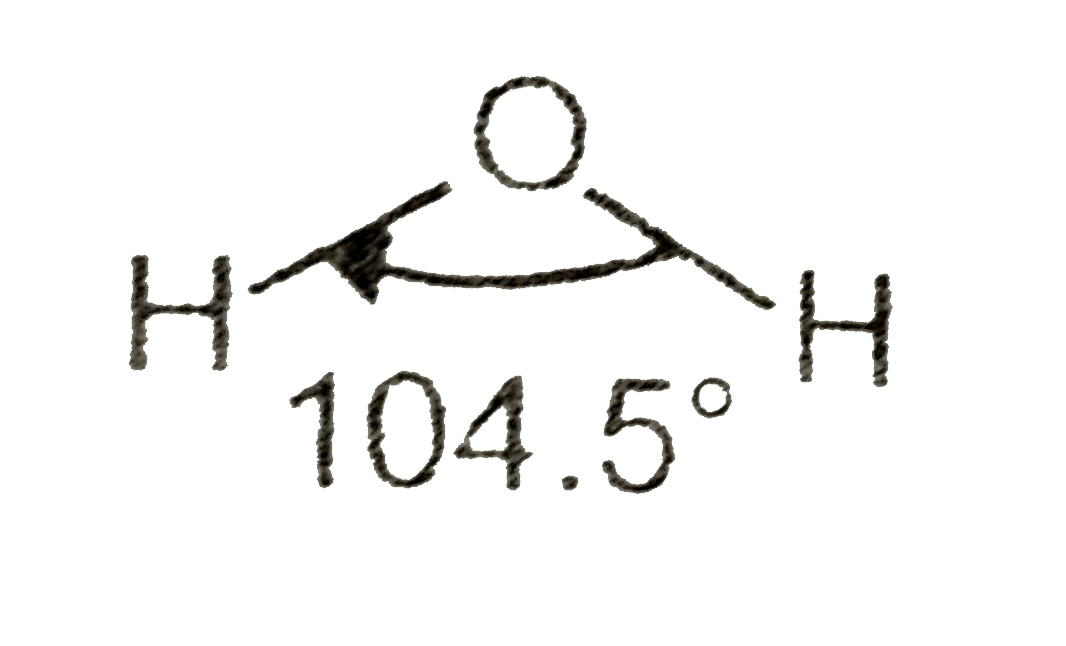In the following which one will have zero dipole moment ?
BF3
CCl4
BeCl2
All of these
The correct Answer is:D
To determine which of the given compounds has a zero dipole moment, we need to analyze the molecular geometry and hybridization of each compound. Let's break down the solution step by step.
Step 1: Identify the Compounds
The question provides four compounds. We need to analyze each one to determine their dipole moments. The compounds mentioned are:
1. BF3 (Boron Trifluoride)
2. CCl4 (Carbon Tetrachloride)
3. BeCl2 (Beryllium Dichloride)
Step 2: Determine the Hybridization and Geometry
- BF3:
- Hybridization: sp²
- Geometry: Trigonal planar
- CCl4:
- Hybridization: sp³
- Geometry: Tetrahedral
- BeCl2:
- Hybridization: sp
- Geometry: Linear
Step 3: Draw the Structures
- BF3: The structure has Boron at the center with three Fluorine atoms at 120° angles.
- CCl4: The structure has Carbon at the center with four Chlorine atoms arranged tetrahedrally.
- BeCl2: The structure has Beryllium at the center with two Chlorine atoms on either side, forming a linear shape.
Step 4: Analyze the Dipole Moments
- BF3:
- Each B-F bond has a dipole moment directed towards Fluorine due to its higher electronegativity. However, because of the trigonal planar geometry and equal bond angles (120°), the dipole moments cancel each other out. Therefore, the net dipole moment is zero.
- CCl4:
- Each C-Cl bond has a dipole moment directed towards Chlorine. The tetrahedral geometry means that the dipole moments from the four bonds also cancel each other out due to symmetry. Thus, the net dipole moment is zero.
- BeCl2:
- Each Be-Cl bond has a dipole moment directed towards Chlorine. In the linear geometry, the two dipole moments are equal in magnitude and opposite in direction (180° apart), which results in a net dipole moment of zero.
Conclusion
All three compounds (BF3, CCl4, and BeCl2) have a net dipole moment of zero due to their symmetrical arrangements. Therefore, the correct answer is that all of these compounds have zero dipole moments.
Final Answer
All of the above compounds (BF3, CCl4, BeCl2) have zero dipole moment.
---
The question provides four compounds. We need to analyze each one to determine their dipole moments. The compounds mentioned are:
1. BF3 (Boron Trifluoride)
2. CCl4 (Carbon Tetrachloride)
3. BeCl2 (Beryllium Dichloride)
- BF3:
- Hybridization: sp²
- Geometry: Trigonal planar
- CCl4:
- Hybridization: sp³
- Geometry: Tetrahedral
- BeCl2:
- Hybridization: sp
- Geometry: Linear
- BF3: The structure has Boron at the center with three Fluorine atoms at 120° angles.
- CCl4: The structure has Carbon at the center with four Chlorine atoms arranged tetrahedrally.
- BF3:
- Each B-F bond has a dipole moment directed towards Fluorine due to its higher electronegativity. However, because of the trigonal planar geometry and equal bond angles (120°), the dipole moments cancel each other out. Therefore, the net dipole moment is zero.
- Each C-Cl bond has a dipole moment directed towards Chlorine. The tetrahedral geometry means that the dipole moments from the four bonds also cancel each other out due to symmetry. Thus, the net dipole moment is zero.
- Each Be-Cl bond has a dipole moment directed towards Chlorine. In the linear geometry, the two dipole moments are equal in magnitude and opposite in direction (180° apart), which results in a net dipole moment of zero.
All three compounds (BF3, CCl4, and BeCl2) have a net dipole moment of zero due to their symmetrical arrangements. Therefore, the correct answer is that all of these compounds have zero dipole moments.
All of the above compounds (BF3, CCl4, BeCl2) have zero dipole moment.
Topper's Solved these Questions
- CHEMICAL BONDING & MOLECULAR STRUCTURE BOOK - VMC MODULES ENGLISHCHAPTER - CHEMICAL BONDING & MOLECULAR STRUCTURE EXERCISE - IN-CHAPTER EXERCISE-K
6 Videos
- CHEMICAL BONDING & MOLECULAR STRUCTURE BOOK - VMC MODULES ENGLISHCHAPTER - CHEMICAL BONDING & MOLECULAR STRUCTURE EXERCISE - IN-CHAPTER EXERCISE-L
9 Videos
- CHEMICAL BONDING & MOLECULAR STRUCTURE BOOK - VMC MODULES ENGLISHCHAPTER - CHEMICAL BONDING & MOLECULAR STRUCTURE EXERCISE - IN-CHAPTER EXERCISE-I
10 Videos
- CHEMICAL BONDING & CHEMICAL STRUCTURE BOOK - VMC MODULES ENGLISHCHAPTER - CHEMICAL BONDING & CHEMICAL STRUCTURE EXERCISE - IMPECCABLE
50 Videos
- CHEMICAL BONDING-I & IIBOOK - VMC MODULES ENGLISHCHAPTER - CHEMICAL BONDING-I & IIEXERCISE - JEE Advanced (Archive)
98 Videos
Similar Questions
Knowledge Check
Out of the following compounds, which one will have a zero dipole moment?
A1, 1-DichloroethyleneBcis-1, 2-DichloroethyleneCtrans-1, 2-dichloroethyleneDnone of these compounds.Which of the following compounds has a zero dipole moment ?
A B
B C
C D
D
Which of the following will have zero dipole moment?
View SolutionWhich among the following pairs of molecules have zero dipole moment ? .
View SolutionElectric Dipole moment is a vector quantify . If a compound contain more than one polar bond then , the net electric dipole moment is equal to vector sum of individual dipole moment .
e.g., In H2O
μ=1.84D

Which of the following compounds have zero dipole moment ?
View SolutionWhich of the following set of molecules will have zero diplole moment?
View SolutionWhich of the following would have a permanent dipole moment ?
View SolutionWhich of the following would have a permanent dipole moment ?
View Solution
